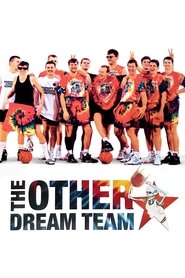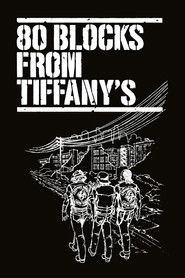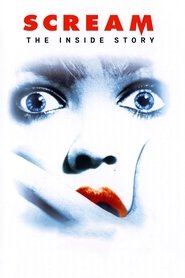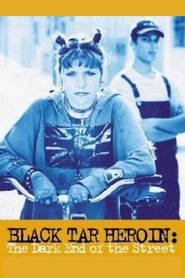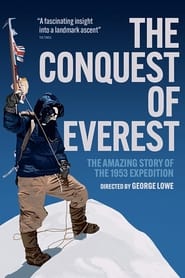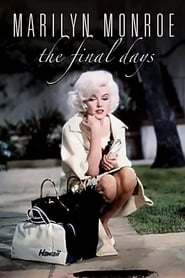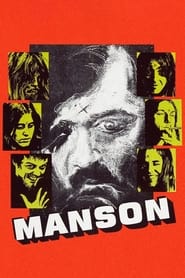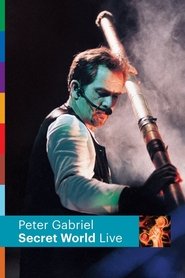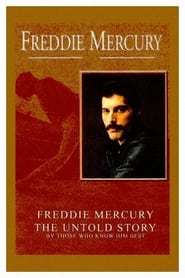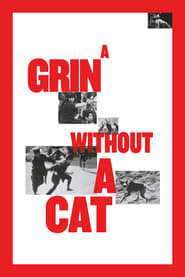Top Rated Documentary Movies on Pantaflix - Page 158
-
Beefcake
1998
Beefcake
1998
star 5.1A look at the 1950s muscle men's magazines and the representative industry which were popular supposedly as health and fitness magazines, but were in reality primarily being purchased by the still-underground homosexual community. Chief among the purveyors of this literature was Bob Mizer, who maintained a magazine and developed sexually inexplicit men's films for over 40 years. Aided by his mother, the two maintained a stable of not so innocent studs. -
$ellebrity
2013
$ellebrity
2013
star 5.8Fame has become what millions of us follow, believe in and seemingly what we care about most - as well as a billion-dollar-a-year industry. But what does our intense fascination with celebrity say about us? And how much is too high a price to pay for our own curiosity run rampant? "$ellebrity" is a candid dialogue about the tone and texture of celebrity, past, present and future; an examination of our pop culture; and an honest look at the quality of our media consumption. -
A Man Vanishes
1967
A Man Vanishes
1967
star 6.7A Man Vanishes examines the concept of Johatsu, tackling the phenomenon of people missing in Japan over the years. It picks one such person from the list, someone who had seemed to disappear from the face of the earth due to embezzlement from his company, and the filmmakers begin an investigative documentary into the reasons behind and attempt at tracking him down. -
The Pruitt-Igoe Myth
2012
The Pruitt-Igoe Myth
2012
star 6.7Destroyed in a dramatic and highly-publicized implosion, the Pruitt-Igoe public housing complex has become a widespread symbol of failure amongst architects, politicians and policy makers. The Pruitt-Igoe Myth explores the social, economic and legislative issues that led to the decline of conventional public housing in America, and the city centers in which they resided, while tracing the personal and poignant narratives of several of the project's residents. In the post-War years, the American city changed in ways that made it unrecognizable from a generation earlier, privileging some and leaving others in its wake. The next time the city changes, remember Pruitt-Igoe. -
The Other Dream Team
2012
The Other Dream Team
2012
star 7.2The incredible story of the 1992 Lithuanian basketball team, whose athletes struggled under Soviet rule, became symbols of Lithuania's independence movement, and – with help from the Grateful Dead – triumphed at the Barcelona Olympics. -
80 Blocks from Tiffany's
1980
star 6.4This 1979 documentary depicts the daily life of gangs in the South Bronx. It deals primarily with two African American and Puerto Rican gangs known as the "Savage Skulls" and the "Savage Nomads". -
Scream: The Inside Story
2011
star 6In 1996, the horror master Wes Craven unleashed Scream, a slasher movie aimed at a whole new generation of teenage movie-goers. -
Black Tar Heroin: The Dark End of the Street
2000
star 6.7The film follows a simple structure, and shows the drug-related degradation of five youths (Jake, Tracey, Jessica, Alice, Oreo) during the course of three years. The film depicts drug-related crimes and diseases: prostitution, male prostitution, AIDS, and lethal overdoses. -
The Conquest of Everest
1953
star 7.1A documentary of the first successful expedition to the summit of Mount Everest. New Zealand's Edmund Hillary and Sherpa Tenzing Norgay climb Mount Everest in 1953. -
How to Die in Oregon
2011
How to Die in Oregon
2011
star 8In 1994 Oregon became the first state to legalize physician-assisted suicide. At the time, only Belgium, Switzerland, and the Netherlands had legalized the practice. 'How to Die in Oregon' tell the stories of those most intimately involved with the practice today -- terminally ill Oregonians, their families, doctors, and friends -- as well as the passage of an assisted suicide law in Washington State. -
Marilyn Monroe: The Final Days
2001
star 6.8Marilyn Monroe's final project, "Something's Got to Give", has become one of the most talked about unfinished films in history. The story of the film and Marilyn's last days were seemingly lost… until now. Through interviews, never-before-seen footage and an edited reconstruction of "Something's Got to Give", Marilyn Monroe: The Final Days provides a definitive and fascinating look at the last act in the life of the world's most famous and tragic superstar. -
Vive Le Tour
1962
Vive Le Tour
1962
star 6.8A short documentary about the 1962 Tour-de-France. Topics covered include: crowds of people and motorcycles, drinking raids and feeding, pileups, doping, "the charge," and the mountain stages. -
They Call Us Misfits
1968
They Call Us Misfits
1968
star 6.8A documentary film depicting a group of young boys from Stockholm which live on the outskirts of society. The film is the first part of a trilogy. -
Manson
1973
Manson
1973
star 6.9Prosecuting attorney Vincent Bugliosi and Manson "family" members Lynette Fromme, Mary Brunner and Sandra Good discuss the Tate-LaBianca murders. -
Peter Gabriel: Secret World Live
1994
star 8.6Filmed in Modena, Italy across two nights in November 1993 as part of Peter Gabriel's acclaimed Secret World Live tour in support of the Us album, the show is elaborately presented and choreographed with two stages joined by a narrow pier. Peter Gabriel has always been a charismatic live performer with the ability to draw his audience into the onstage world he has created and rarely has this been better captured than on Secret World Live. -
Freddie Mercury: The Untold Story
2000
star 7.7Freddie Mercury (1946-91) was not just a man with one of the most pure and amazing voices the world has heard, but he was also the lead singer for Queen, the most enthusiastic rock band in history. -
Dinosaurs: Giants of Patagonia
2007
star 6.7If it weren't for a series of cataclysmic events, a comet impact being first on the list, our planet could well still be the domain of dinosaurs. Following Pr Rodolfo Coria, a world-renowned Argentinian paleontologist, we visit sites of major discoveries he has contributed to in Patagonia and travel back in time to see these amazing beasts come to life in 3D... -
A Grin Without a Cat
1977
A Grin Without a Cat
1977
star 7.8Chris Marker’s A Grin Without a Cat is an epic political essay tracing the rise and decline of the global left from the 1960s to the 1970s. Through archival footage and commentary, the film examines revolutionary movements in France, Latin America, and beyond, reflecting on the ideals, failures, and fading hopes of a generation. -
And Everything Is Going Fine
2010
star 6.4From the first time he performed Swimming to Cambodia - the one-man account of his experience of making the 1984 film The Killing Fields - Spalding Gray made the art of the monologue his own. Drawing unstintingly on the most intimate aspects of his own life, his shows were vibrant, hilarious and moving. His death came tragically early, in 2004; this compilation of interview and performance footage nails his idiosyncratic and irreplaceable brilliance. -
Richard Pryor: Live and Smokin'
1971
star 6.4Richard Pryor: Live & Smokin' is the first stand-up act of Richard Pryor to be filmed out of the four that were released in total. This film was filmed in 1971 but not released until 1985, on VHS. This was the first stand-up act that Pryor did before he hit the mainstream audience. With only 48 minutes of footage, it is the shortest of Pryor's stand-up routines.
 Netflix
Netflix
 Amazon Prime Video
Amazon Prime Video
 Apple iTunes
Apple iTunes
 Apple TV Plus
Apple TV Plus
 Disney Plus
Disney Plus
 Google Play Movies
Google Play Movies
 Paramount Plus
Paramount Plus
 Hulu
Hulu
 HBO Max
HBO Max
 YouTube
YouTube
 fuboTV
fuboTV
 Peacock
Peacock
 Peacock Premium
Peacock Premium
 Amazon Video
Amazon Video
 The Roku Channel
The Roku Channel
 AMC+
AMC+
 Kocowa
Kocowa
 Hoopla
Hoopla
 The CW
The CW
 Vudu
Vudu
 Starz
Starz
 Showtime
Showtime
 PBS
PBS
 Pantaflix
Pantaflix
 FXNow
FXNow
 Tubi TV
Tubi TV
 Kanopy
Kanopy
 Comedy Central
Comedy Central
 Crunchyroll
Crunchyroll
 Microsoft Store
Microsoft Store
 Redbox
Redbox
 Sun Nxt
Sun Nxt
 ABC
ABC
 DIRECTV
DIRECTV
 Crackle
Crackle
 Fandor
Fandor
 Plex
Plex




